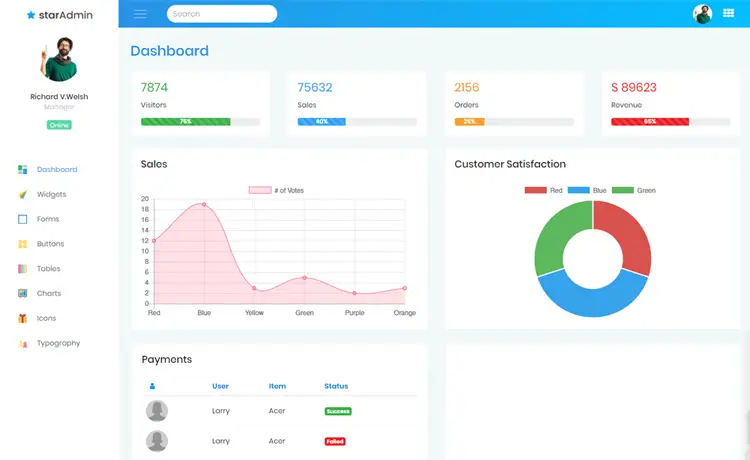Dapper vs Entity framework
By Tan Lee Published on Dec 09, 2024 436
The choice of Object-Relational Mapper (ORM) can determine whether a .NET application is effective or not, as it affects performance, maintainability, and scalability. Entity Framework Core (EF Core) and Dapper are the two most popular ORMs for .NET development. While both aim to simplify database interactions by abstracting complexities, they operate at different abstraction levels with distinct strengths and weaknesses.
What is EF Core?
Entity Framework Core (EF Core) is a modern, lightweight, and feature-rich Object-Relational Mapping (ORM) framework developed by Microsoft for .NET applications. It allows developers to interact with databases using .NET objects, simplifying database operations by abstracting complexities. EF Core offers features like change tracking, LINQ support, and database migrations, making it an excellent choice for projects with complex data models and relationships. It is highly configurable, extensible, and simplifies data access for .NET applications.
What is Dapper?
Dapper is a lightweight, high-performance micro-ORM designed for the .NET ecosystem by the Stack Overflow team. Compared to EF Core, Dapper is more lightweight and focuses on simplicity and performance by providing helper functions to execute raw SQL queries directly. It maps SQL queries to .NET objects with minimal overhead, making it ideal for scenarios where raw performance is critical, such as high-concurrency environments or applications dealing with large datasets.
What is the difference between Dapper and Entity Framework?
Dapper: A micro-ORM that provides lightweight object mapping. It focuses on simplicity and speed by executing raw SQL queries directly.
Entity Framework: A full-featured ORM that offers an abstraction over database interactions using LINQ (Language Integrated Query) and allows developers to work with database entities in an object-oriented way.
Dapper: Gives you full control over SQL queries and stored procedures. You write the SQL yourself, which offers flexibility but requires more manual effort.
Entity Framework: Allows you to use LINQ to generate SQL, letting the ORM handle the database logic so you can focus on C# code rather than raw SQL.
Dapper: Simpler to set up and use. It’s ideal for projects with specific or straightforward queries without requiring a lot of abstraction.
Entity Framework: More feature-rich and supports advanced features like change tracking, lazy loading, and database migrations. This can add overhead but simplifies database logic for large, complex systems.
Dapper: Known for being very fast because it uses raw SQL for execution and has minimal overhead. Great for scenarios where performance is critical.
Entity Framework: Slower compared to Dapper due to its abstraction layers, features like change tracking, and the use of LINQ. However, EF can handle complex scenarios better.
When choosing:
Dapper: Opt for full control, better performance for fine-grained queries, or if you prefer SQL directly.
Entity Framework: Choose if you value simplicity, abstraction, and the ability to use LINQ without focusing on SQL.
| Scenario | Dapper | Entity Framework |
|---|---|---|
| Simple CRUD or query-based projects | ✅ Faster and simpler setup | ❌ Overhead due to extra features |
| Complex business logic with lazy loading or migrations | ❌ Limited support | ✅ Fully supports these features |
| High-performance needs | ✅ Optimized for speed | ❌ Slower compared to Dapper |
| LINQ queries required | ❌ Limited LINQ support | ✅ Full LINQ support |
Both ORMs work well for projects of all sizes, but for exceptional cases like bulk data imports, tools like Dapper Plus, Entity Framework Extensions, or SqlBulkCopy can optimize performance.
- SqlException: Cannot insert explicit value for identity column
- How to use decimal precision and scale in EF Code First
- How to add a computed column in EF Core
- Applying Migrations Programmatically in EF Core
- Creating a Database and Table in EF Core
- Database Schema Modifications in EF Core
- Adding a Computed Column in EF Core
- Inheritance Mapping in EF Core





